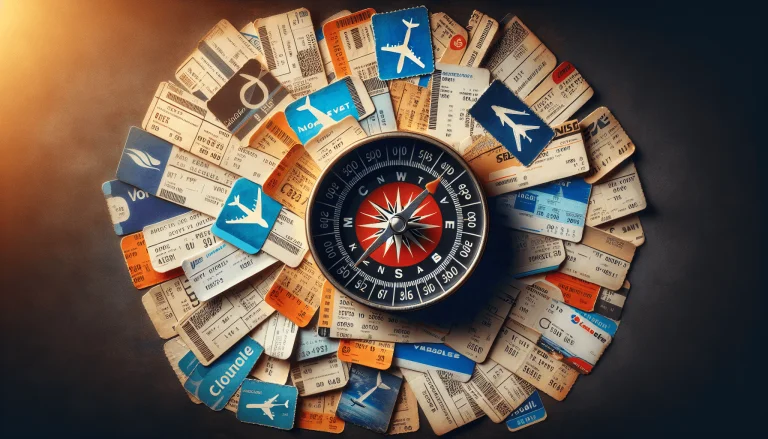Top 10 Tips For Planning A Budget-Friendly Trip
Planning a budget-friendly trip can often seem like a daunting task, but fear not! In this article, you will find the top 10 tips that will help you plan a memorable vacation without breaking the bank. From finding affordable accommodations to mastering the art of budgeting, these tips will ensure that you can explore new destinations while staying within your means. Whether you’re a seasoned traveler or embarking on your first adventure, these tips are sure to make your trip both enjoyable and cost-effective. So, grab a pen and paper, because you’re about to discover the secrets to planning a budget-friendly trip that will leave you with unforgettable experiences and a happy wallet. Let’s dive in!
Decide on Your Budget
The importance of determining a budget
When planning a budget-friendly trip, the first and most important step is to determine your budget. Setting a budget will help you make informed decisions about your spending and ensure that you don’t overspend during your trip. It’s crucial to have a clear understanding of how much money you’re willing to spend on accommodation, transportation, meals, activities, and other expenses beforehand.
How to calculate a realistic budget
To calculate a realistic budget, start by determining how much you can afford to spend on your trip. Consider your current financial situation and any upcoming expenses you need to account for. Once you have an overall amount in mind, break it down into different categories like accommodation, transportation, meals, and activities. Research the average costs in your chosen destination to get a better idea of how much you’ll need to allocate to each category.
Identify key areas of spending
Identifying the key areas of spending will help you prioritize where to allocate your budget. Accommodation and transportation are usually the biggest expenses, followed by meals and activities. By allocating a larger portion of your budget to these key areas, you can ensure that you have a comfortable and enjoyable trip without overspending. Remember to also factor in any additional costs like visas, travel insurance, and souvenirs.
Choose Your Destination Carefully
Research affordable travel destinations
When planning a budget-friendly trip, it’s essential to research and choose affordable travel destinations. Some destinations may have lower costs of living or favorable exchange rates, making them more budget-friendly options. Look for destinations where you can get the most value for your money while still experiencing the culture and attractions you’re interested in.
Compare costs between potential destinations
Before finalizing your destination, compare costs between potential options. Look at the average prices for accommodation, transportation, meals, and activities in different destinations to see which one fits your budget best. Don’t forget to consider the overall cost of living in each location, as it can significantly impact your expenses during the trip. By choosing a destination with lower costs, you can stretch your budget further.
Understand the impact of travel seasons
Understanding the impact of travel seasons can help you save money on your trip. Some destinations have peak seasons when prices skyrocket due to high demand, while off-peak seasons offer more budget-friendly options. Consider traveling during the shoulder season, which is the period between the peak and off-peak seasons. During this time, you can often find lower prices on accommodation and activities while still enjoying favorable weather conditions.
Seek Out Cost-Effective Accommodations
Types of budget accommodations
There are several types of budget accommodations that can help you save money during your trip. Hostels are a popular choice for budget travelers, offering shared or private rooms at affordable prices. Guesthouses and budget hotels are also options worth considering, as they often provide comfortable accommodations at reasonable rates. Additionally, renting apartments or using home-sharing services can be cost-effective, especially if you’re traveling with a group or staying for an extended period.
Benefits of using home-sharing services
Using home-sharing services like Airbnb or Vrbo can provide several benefits for budget-conscious travelers. These services allow you to rent rooms or entire homes from local hosts, often at lower rates compared to hotels. By staying in a home, you’ll have access to a kitchen where you can prepare your meals, saving money on dining out. Home-sharing services also offer more space and amenities compared to traditional accommodations, giving you better value for your money.
How to negotiate room rates
When booking accommodations, don’t be afraid to negotiate room rates, especially if you’re staying for an extended period or booking multiple rooms. Contact the property directly and inquire about any discounts or special offers. Be polite and friendly, and explain that you’re looking for a budget-friendly option. In some cases, hotels and guesthouses may be willing to offer a discounted rate to secure your booking, especially during off-peak seasons or when they have low occupancy.
Plan Your Meals
Tips for saving money on meals
One of the biggest expenses during a trip is meals, but there are plenty of ways to save money on food without sacrificing taste or experience. Start by eating where the locals dine rather than touristy areas, as local eateries often offer more affordable and authentic dining options. Look for lunch or dinner specials, which are often cheaper than ordering à la carte. Take advantage of happy hours or early bird dining deals at restaurants. Finally, consider packing your own snacks or picnic lunches to avoid unnecessary expenses.
Consider self-catering options
Self-catering options can significantly reduce your meal expenses during a trip. If you’re staying in accommodations with kitchen facilities, take advantage of this by shopping for groceries and preparing your meals. Not only will you save money, but you’ll also have the opportunity to sample local ingredients and cook your favorite dishes. Visit local markets or grocery stores to find fresh produce, snacks, and beverages at lower prices compared to eating out for every meal.
Identify affordable local eateries
Exploring affordable local eateries is a great way to experience the local cuisine without breaking the bank. Look for street food stalls or food markets where you can find delicious and inexpensive meals. Ask locals or fellow travelers for recommendations on their favorite budget-friendly restaurants or cafes. By venturing off the beaten path and exploring local spots, you’ll not only save money but also have a more authentic and memorable dining experience.
Use Public Transportation System
Advantages of using public transportation
Using public transportation is not only cost-effective but also allows you to experience a destination like a local. Public transportation systems such as buses, trains, trams, and subways are often more affordable than taxis or rental cars. They provide the opportunity to explore different neighborhoods and attractions without the hassle of parking or getting lost. Additionally, public transportation can offer a unique insight into the culture and daily life of the locals.
How to save money with travel passes
Many cities offer travel passes or cards that provide unlimited access to public transportation for a fixed period. These passes can save you money, especially if you plan to use public transportation frequently. Research the available options and determine which pass or card best suits your needs. Consider factors such as the duration of your stay, the number of days you’ll be using public transportation, and the areas you’ll be visiting. By purchasing a travel pass, you’ll have the flexibility to explore the city at a fraction of the cost.
Strategize using combinations of transport
Sometimes, a combination of different modes of transport can be the most cost-effective option. For longer distances, consider taking a bus or train instead of flying, as it’s often cheaper. Once you arrive at your destination, use public transportation to get around the city or town. Walk or rent bicycles for shorter distances or explore areas where public transportation may not be available or convenient. By strategically combining different forms of transport, you can optimize your budget and make the most of your trip.
Travel Off-Season
Why off-season traveling is cheaper
Traveling during the off-season can significantly reduce your expenses. During off-peak seasons, prices for accommodation, flights, and activities tend to be lower due to decreased demand. Hotels and tourist attractions may offer special promotions or discounts to attract travelers during these periods. Additionally, you’ll experience fewer crowds, making it easier to enjoy popular tourist spots without the long lines and crowded spaces. Off-season travel not only saves you money but also provides a more relaxed and authentic travel experience.
How to identify off-peak seasons
To identify off-peak seasons for your chosen destination, research the tourism patterns and consult travel guides or websites. Off-peak seasons can vary depending on the location and can be influenced by factors such as weather, holidays, or local events. Typically, you’ll find that shoulder seasons, which fall between the high and low seasons, offer the best balance of good weather, fewer tourists, and lower prices. Plan your trip accordingly, and you’ll be rewarded with significant savings and a more enjoyable travel experience.
Possible disadvantages of off-peak travel
While off-peak travel has many advantages, there are a few possible disadvantages to consider. Some tourist attractions, restaurants, or shops may have limited operating hours or be closed during the off-season. Certain activities or excursions might not be available or could be canceled due to low demand. Additionally, the weather conditions may not be as favorable as during the peak season. However, with careful planning and research, you can mitigate these disadvantages and still have a fantastic and budget-friendly trip.
Consider Travel Insurance
Understanding the benefits of travel insurance
Travel insurance is an essential aspect of any trip, as it provides coverage and protection in case of unforeseen circumstances. While it may seem like an additional expense, the benefits of travel insurance far outweigh the cost. Travel insurance can cover medical emergencies, trip cancellations or interruptions, lost or stolen belongings, and other travel-related mishaps. Having insurance gives you peace of mind knowing that you’re financially protected in case of emergencies or unexpected situations.
How insurance can save you money in emergencies
Travel insurance can actually save you money in emergencies. Medical emergencies, especially in foreign countries, can be extremely costly. With travel insurance, you have coverage for medical expenses, hospital stays, and emergency transportation, saving you from potentially crippling medical bills. In case of trip cancellations or interruptions due to unforeseen events like illness or natural disasters, travel insurance can reimburse you for non-refundable expenses such as flights or accommodation, saving you from significant financial losses.
Selecting a cost-effective yet comprehensive insurance plan
When selecting a travel insurance plan, it’s essential to find a cost-effective yet comprehensive option. Consider the coverage limits, deductibles, and exclusions of different insurance plans. Read reviews and compare prices from reputable insurance providers to find the best balance of affordability and coverage. Look for plans that cover medical emergencies, trip cancellations, and baggage loss or theft. Remember to disclose any pre-existing medical conditions to ensure you’re adequately covered. By choosing the right insurance plan, you’ll be prepared for any unexpected situations without overspending.
Pack Smartly
How to avoid excess luggage fees
Packing smartly can help you avoid excess luggage fees and save money. Before you start packing, check the baggage allowance of your airline and make sure to adhere to the weight and size restrictions. Traveling with a carry-on bag is the most cost-effective option, as you won’t have to pay any additional fees. Pack versatile outfits that can be mixed and matched, reducing the number of clothes you need to bring. Roll your clothes instead of folding them to maximize space in your luggage. Consider doing laundry during your trip to minimize the amount of clothing you need to pack.
Benefits of packing lightly and intelligently
There are several benefits to packing lightly and intelligently. Firstly, you’ll save money on luggage fees, especially if you’re flying with a budget airline that charges for checked bags. Packing light also makes it easier to maneuver through airports and train stations, reducing stress and saving time. Having a smaller suitcase or bag allows you to easily use public transportation without struggling to fit your luggage. Additionally, packing fewer items gives you more flexibility to bring back souvenirs or shopping finds without exceeding your luggage weight limit.
Creating a versatile and minimalistic packing list
Creating a versatile and minimalistic packing list is key to packing smartly. Start by making a list of essentials, including clothing, toiletries, and electronics. Consider the climate and activities you’ll be engaging in during your trip. Choose clothing items that can be layered or easily mixed and matched to create different outfits. Opt for lightweight and quick-drying fabrics that take up less space in your luggage. Minimize toiletries by packing travel-sized items or opting for solid or multipurpose products. Remember to pack any necessary medications or travel adapters. By carefully curating your packing list, you’ll have everything you need without the extra weight.
Plan Activities in Advance
Benefits of planning out itinerary ahead of time
Planning out your itinerary ahead of time has several benefits, especially when it comes to saving money on activities. By researching and booking activities in advance, you can often find discounted prices or early bird deals. Planning ahead also allows you to allocate your budget accordingly, ensuring that you have enough funds for the activities you’re interested in. Additionally, having a well-organized itinerary helps you make the most of your time and avoid wasting money on unnecessary or overpriced activities.
Identify free or low-cost activities
One of the best ways to save money on activities is to identify free or low-cost options in your destination. Many cities and towns have parks, gardens, museums, or cultural attractions that offer free admission or have discounted rates on certain days or times. Look for local events, festivals, or markets that provide entertainment without charging an entrance fee. Take advantage of nature trails, hiking routes, or scenic viewpoints that offer stunning views and outdoor experiences at no cost. By researching and exploring these options, you can have an enriching experience without spending a fortune.
Avoid common tourist traps and gimmicks
Be cautious of common tourist traps and gimmicks that can quickly drain your budget. Some attractions or activities may be overpriced or not worth the cost. Research reviews and recommendations from fellow travelers to gauge the value and quality of the experiences. Avoid buying souvenirs or tickets from street vendors or unofficial sellers, as they may be counterfeit or of poor quality. Instead, shop at local markets or stores where you can find authentic and reasonably priced souvenirs. By being mindful of tourist traps and gimmicks, you can make informed decisions and make the most of your budget.
Use Technology to Your Advantage
Utilizing budgeting apps and tools
There are several budgeting apps and tools available that can help you stay on track with your expenses during your trip. These apps allow you to set a budget, track your spending, and receive alerts when you’re nearing your designated limits. They provide a clear overview of your financial situation and can help you make adjustments if necessary. Some popular budgeting apps include Mint, PocketGuard, and Trail Wallet. By utilizing these tools, you can have better control over your expenses and ensure that you’re staying within your budget.
Take advantage of travel deal websites
Travel deal websites are a great resource for finding discounted flights, accommodations, and activities. Websites like Expedia, Kayak, and Booking.com offer deals and promotions that can help you save money on your trip. Sign up for newsletters or alerts from these websites to receive notifications about flash sales and special offers. Additionally, consider booking package deals that combine flights, accommodation, and activities, as they often provide better value compared to booking each component separately. By using travel deal websites, you can find bargains and stretch your budget further.
Using local-based apps to find deals and discounts
Once you arrive at your destination, using local-based apps can help you find deals and discounts on dining, activities, and transportation. Apps like Yelp, TripAdvisor, or Groupon can provide information on local deals and offers. Look for apps specific to your destination that offer discounts at attractions or restaurants. Also, consider signing up for local transportation apps or using ride-sharing services that offer promotional codes for first-time users. By taking advantage of these apps, you can discover hidden gems and save money on various aspects of your trip.
In conclusion, planning a budget-friendly trip requires careful consideration and research in various aspects of your travel. By deciding on your budget, choosing your destination wisely, seeking out cost-effective accommodations, planning your meals, utilizing public transportation, traveling off-season, considering travel insurance, packing smartly, planning activities in advance, and using technology to your advantage, you can have a memorable and enjoyable trip without compromising your wallet. Remember, with the right planning and a positive mindset, you can explore the world while staying within your budget. Happy travels!





